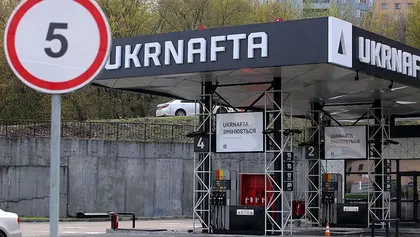Once there was a stock market in Ukraine. It disappeared when New York reported Lehman Brothers employees’ walking out of their offices with boxes full of personal belongings, which signaled the start of a major financial crisis. After that, there were attempts at market recovery, which ended in nothing. People talked about the stock market in Ukraine with irony and began perceiving those still holding the shares of Ukrainian companies as masochists.
Well, recent events have once again confirmed this opinion. On Nov. 7, those few investors in the stock market felt themselves robbed. The holders of Motor Sich and Ukrnafta securities no longer found shares on their accounts. The state decided it needed these enterprises more, up to the last share.
The authorities expropriated the securities in accordance with martial law, promising to pay something after the war. Moreover, the government put not a point, but an ellipsis, stating that these enterprises might not be the last. As a result, numerous business owners and creditors got tensed up.
This news was prominent in Western media until the liberation of Kherson.
Logical, but questions remain
Yes, there is logic in the actions of the state. Each of these enterprises is now very important in fighting Russian aggression. Their bankrupt plants are unable to work as normal, while their products are extremely important in the fight against Russian invaders.
Aircraft engineering manufacturer Motor Sich, whose president Vyacheslav Bohuslayev was recently charged with treason, is an essential element of the defense industry of Ukraine.
Oil and gas producer Ukrnafta, and oil refining company Ukrtatnafta, are also crucial. This is because it is possible to create a vertically integrated oil company on their bases in the hope that new Russian missiles and drones won’t reach Kremenchuk.
But while there is logic, when the forest is cut, the chips fly. And now there is even less investor confidence in Ukrainian shares, more fears on the part of foreign investors and creditors, and yet more uncertainty.
A big question is whether all this will be attributed to the war after it ends. After all, ambitious plans for stock market development and the launch of the second level of the pension system are currently gathering dust somewhere.
There are many questions founded on mistrust. For example, why nationalize an already state-owned company? Isn’t there a deal with an oligarch here? Who will assess the value of shares after the war and how? Is it worth banking on the oil refinery not being hit by a missile? Why does Kolomoisky still control Ukrnafta and Ukrtatnafta even after nine months of war? Who’s next? And couldn’t the same thing be done more elegantly?
Shareholders have many questions. Foreign investors and journalists have many questions as well.
Media attention
At the same time, Ukrainians do not seem to understand at all why this issue is given so much attention in the Western media. British newspaper The Financial Times is a testimony to that. In Ukraine, the focus is on oligarchs, especially on Kolomoisky, while the West, as always, focuses mainly on principles, the rule of law and procedures – all the boring things that get in the way of simple solutions.
Maybe that’s why Ukrainians still can’t understand why Russian assets are only frozen. Why don’t we build roads, bridges, or, at worst, a wall on the border with Belarus using this money?
This difference in perception largely explains the difference in GDP per capita in Ukraine and the European Union.
You may say it’s wartime and we currently have more important matters to attend to than the stock market. For some reason, I remember former British Prime Minister Winston Churchill’s phrase about arts funding in wartime. The war is also going on for the right to the European future, which is inextricably linked with the sanctity of the right to private property.
The views expressed are the author’s and not necessarily of Kyiv Post.
You can also highlight the text and press Ctrl + Enter



